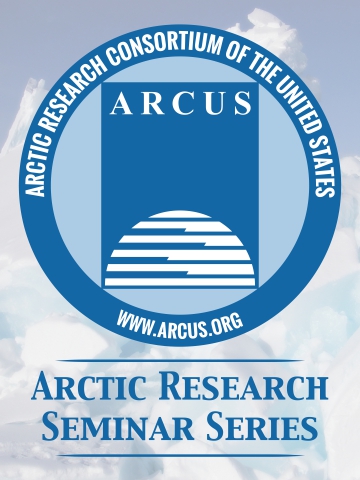Speaker: Jim Thomson, University of Washington's Applied Physics Lab

The Arctic Research Consortium of the U.S. (ARCUS) announces the next Arctic Research Seminar featuring Jim Thomson, Senior Principal Oceanographer at the University of Washington's Applied Physics Lab and a Professor in the Dept. of Civil & Environmental Engineering. This event will be held online via Zoom.
Registration is required for this event.
The ARCUS Arctic Research Seminar Series invites leading Arctic researchers and community leaders to share the latest findings in Arctic research and what they mean for decision-making. The events are free and open to the public, and will be of particular interest to interest to the international Arctic research community, federal agency officials, congressional staff, non-governmental organizations, Arctic educators, and the public.
Jim Thomson is a Senior Principal Oceanographer at the University of Washington's Applied Physics Lab and a Professor in the Dept. of Civil & Environmental Engineering. Dr. Thomson studied Applied Ocean Physics and Engineering in MIT's joint program with the Woods Hole Oceanographic Institution, receiving a PhD in 2006. Dr. Thomson studies waves and turbulence at the surface of the ocean, including interactions with sea ice. His work emphasizes field measurements and physical processes and includes the development of instrumentation and autonomous platforms.
Seminar Abstract:
The rapid decline of summer sea ice cover in the Western Arctic has been accompanied by a dramatic increase in the sea state of the region. Ocean waves are now more common throughout the region, including multiple energetic swell events each summer. These waves interact with the sea ice and help to both form and define the expanding Marginal Ice Zone of the Western Arctic. This seminar will review recent work to observe and forecast changes in the Arctic sea state, including implications for sea ice retreat and coastal morphology.
Instructions for accessing the webinar will be sent to registrants prior to the event.
